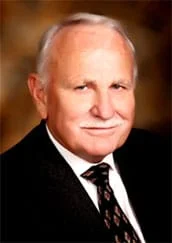WHAT IF A BENEFICIARY OF A WILL HAS DIED?

A. BENEFICIARY DIES BEFORE THE DEATH OF THE WILL-MAKER
When a person makes a Will he/she may assume that the beneficiary or beneficiaries will outlive him/her. So what happens, for example, if a person leaves a sister a sum of money in the Will and the sister dies before the Will-maker?
If the sister was deceased before the Will was executed, the gift is void.
But if the sister was alive when the Will was executed and the sister died before the Will-maker died, then the gift may or may not lapse depending on several factors.
Like many states, California has what is known as an “anti-lapse” statute (California Probate Code §21110; see below). The problem addressed by anti-lapse statutes is lapse (i.e. invalidity). The purpose of California’s anti-lapse statute is to accomplish what the Will-maker may have wanted given the unforeseen death of the beneficiary. When California’s anti-lapse statute applies, the statute passes the property to the issue, heirs, or devisees of the predeceased beneficiary, instead of to the residuary legatees or heirs of the Will-maker.
The problem is a fairly common one because there is often a considerable period of time between the execution of a will and the death of the testator, during which time an intended beneficiary or some of the intended beneficiaries may die. Proper planning and drafting to provide alternative takers can avoid the problem, however, nott all lawyers are careful drafters and not all testators consult lawyers. This result may be exacerbated by many persons using online Will preparation services. For those DIY persons, some are either unaware of the potential problem or they are unable or unwilling to anticipate and to provide for the eventuality that one or more of their intended beneficiaries will predecease them.
Like other states, California has a statutory solution. Under California Probate Code §21110, if a named beneficiary dies before the Will-maker, the heirs (i.e. kindred/related by consanguinity) of the deceased beneficiary may, based on several requirements, inherit the gift in his/or her place. There are important conditions to California’s anti-lapse statute.
- The first requirement is that a gift can only pass to a “person who is a kindred of” the Will-maker or the Will-maker’s spouse. If the Will-maker left a $5,000 gift to a non related friend, that money would not pass to the friend’s children under the anti-lapse statute.
- The second requirement is that the Will can expressly provide otherwise.
For example, if a Will states, “I leave $5,000 to my sister if she shall survive me, otherwise this gift shall lapse,” then if your sister dies before you, her issue (kindred) would not automatically receive the $5,000 under the anti-lapse statute.
Further, a Will may state that a beneficiary must survive the Will-maker by a specific period of time.
Or, a Will might say, “I leave $5,000 to my sister, provided that she survives me by at least 60 days.” Such language is also sufficient to override the anti-lapse statute.
In summary, California Probate Code §21110 only applies if the deceased beneficiary’s heirs are blood related to the person who made the original Will or to the person who made the original Will’s spouse. The anti-lapse statute is intended to keep property in the family; it assumes that the beneficiary who died was related to the testator. If the beneficiary who has died left all his/her property to a non-family member in his/her Will, then the inheritance that he/she cannot accept, because he/she has passed away, returns back to the original person who made the original Will’s estate.
If a Will does not specify who will receive some or all of the property of a deceased beneficiary and the above described California anti-lapse statute does not apply, the property gifted to the predeceased beneficiary will likely pass under California’s "intestate succession" laws attributable to the Will-maker, just as if there was no Will.
B. BENEFICIARY DIES AFTER THE WILL-MAKER BUT BEFORE THE ESTATE IS DISTRIBUTED
Unless a Will provides otherwise, if a beneficiary survives the decedent but then dies later, the deceased beneficiary's share of the estate typically becomes part of the deceased beneficiary’s estate. For example, if a daughter were to inherit $200,000 from her father, that $200,000 transfers to her at the father’s death. However, if the daughter dies before distribution of the father’s estate, the $200,000 would then pass to the daughter’s beneficiaries or heirs-in-law, depending on whether she had a Will.
C. CONCLUSION.
Prior to April 1, 2022, if the decedent owned property in California not exceeding $166,250 in value, the heirs or beneficiaries may file a simplified procedure with the Superior Court asking for an order to determine their right to take the property without probate administration. Now, as of April 1, 2022, the amount is $184,500. If the estate of a decedent is over the monetary it will likely require a formal probate procedure. In that event, the court appointed personal representative of the estate must adhere to specific rules including rules applicable to a predeceased beneficiary’s inheritance.
CONTACT SWEENEY PROBATE LAW FOR AN INITIAL CONSULTATION
Understanding the issues discussed in this article requires the assistance of a qualified probate attorney who can better assess the appropriate course of action. If you are the executor or other nominated person in a Will and you wish to gain more information please contact me for a free consultation. I will spend time with you to answer your questions.
From my office in Southern California, I represent families in all California counties, including Southern California Counties such as Imperial County, Los Angeles County, San Bernardino County, and San Diego County. I also represent parties residing outside of California, including foreign countries, that have probate matters affecting real and/or personal property in California.
Call me toll free at 800-575-9610 or locally at 760-989-4820. I am also available via email or through my online contact form.
Disclaimer: This article is intended to provide general information. The content of this publication is for informational purposes only. Neither this publication nor its author is rendering legal or other professional advice or opinions on specific facts or matters. No attorney-client relationship is created by this advisory, nor by any response to the information herein, unless and until a conflicts review has been conducted by William K. Sweeney, and a written agreement containing all terms of representation has been signed.
Copyright © 2022, William K. Sweeney, Attorney at Law. All rights reserved. Unauthorized use and/or duplication of this material without express and written permission from this article’s author and/or owner is strictly prohibited.





